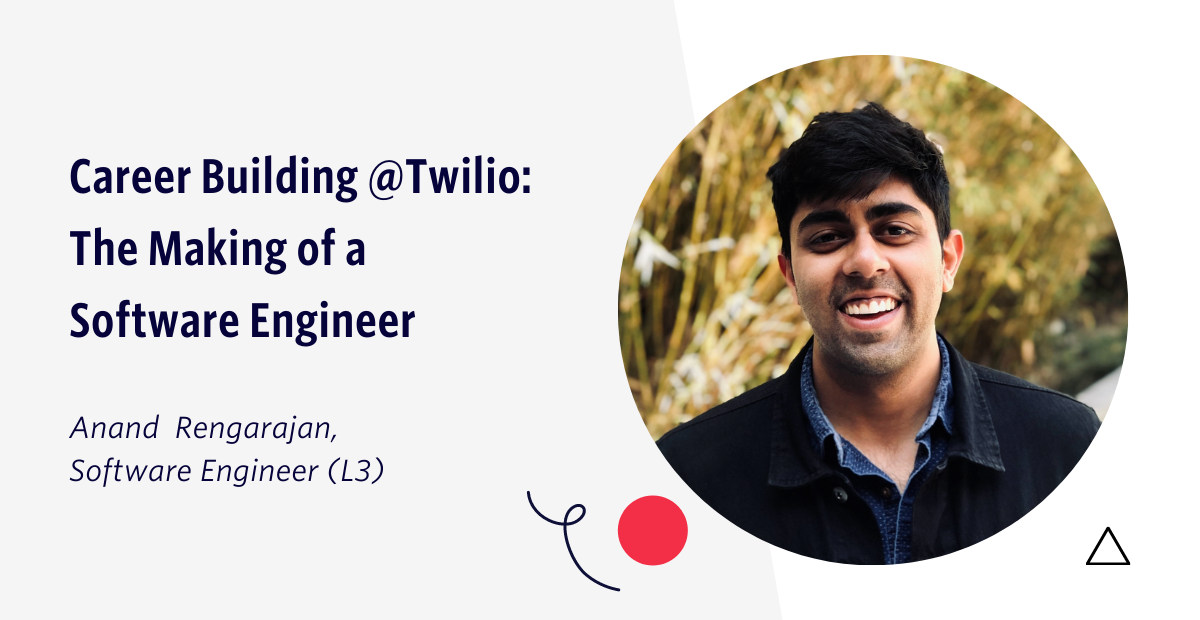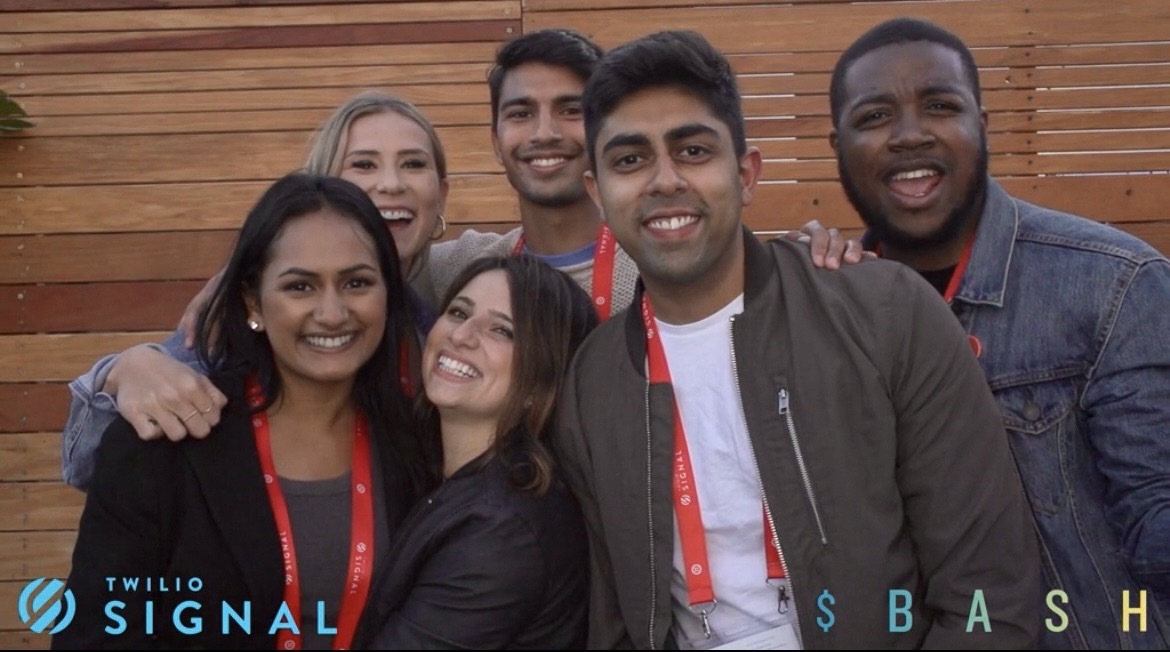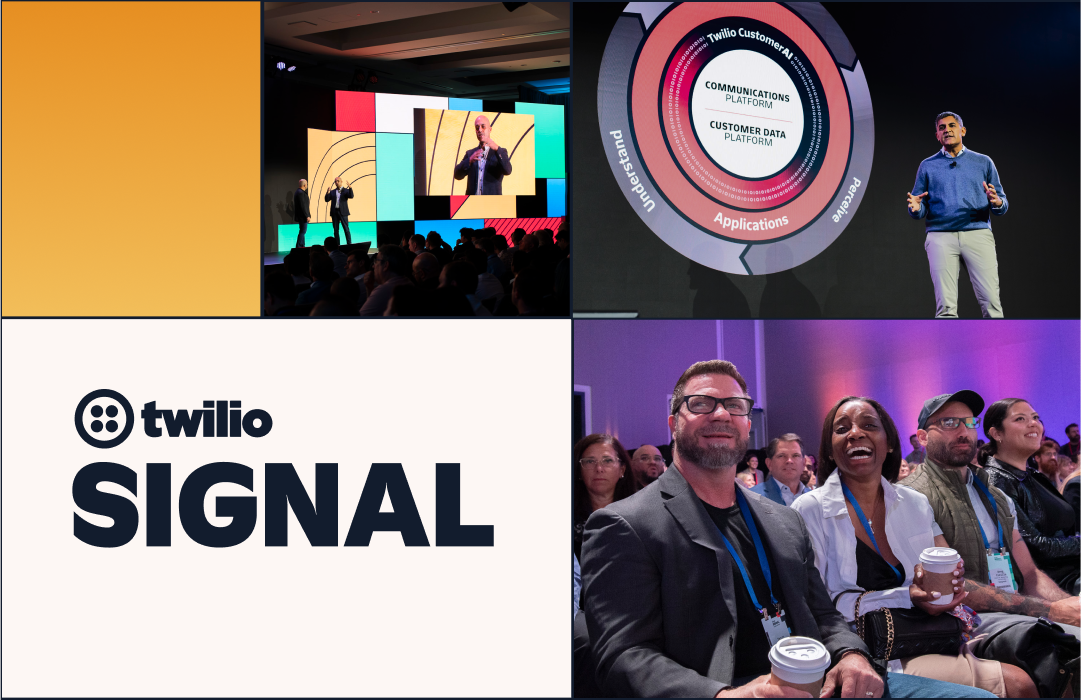Career Building @ Twilio: The Making of a Software Engineer
Time to read: 4 minutes

Instead of a computer science degree or coding boot camp, I earned an economics degree with a minor in business. I ran marketing campaigns and built KPI dashboards. Not an ideal set of skills for someone dreaming of a software engineering job, but that was my resume in 2016. Fast forward to 2021, and I’m proud to say I’ve been a Software Engineer at Twilio for three years!
Plan A: Feeling lost but finding passion.
After graduating in 2013 with an economics degree in hand, I had no idea what I wanted to do with my career. I felt completely lost. For the next few years, I worked in different roles at different companies, each time discovering what I didn’t want to do.
But while at Google, Zenefits, and later at Twilio (starting in a non-engineering position), a pattern emerged. Although I wasn’t hired for technical roles, I obsessively worked on side projects to automate repetitive and manual tasks performed by my team. I started to recognize that my passion presented itself if I knew where to look.
I spent my first two years at Twilio in a Product & Operations role, learning more and more about how essential software is in delivering a delightful customer experience. 99% of my day was spent doing my job, looking forward to that 1% — learning to code and build.
Plan B: Why not just go to coding boot camp?
I asked myself that same question. And in August 2017, I was accepted to App Academy, a three-month coding boot camp program in San Francisco. It was a dream come true: a chance to take that 1% of my day coding to a full 100%. I spoke with my manager at Twilio, and, unsurprisingly, I received an incredible amount of support to make the transition.
Unfortunately, I had some personal financial issues that prevented me from making the commitment. I still believe coding boot camps are great, but let’s be honest, they aren’t cheap.
Plan C: Trusting Twilio
Twilio has always had a great culture supporting and embracing the builders of the world, even those with untraditional backgrounds. My supervisor believed in me and worked with upper management to set up a special transition plan, paving a path to achieve my dream. After proving I had what it takes, I officially started as a Software Engineer at Twilio on October 29th, 2018, a date I will never forget!
I’ve heard from so many people that they share this dream of moving into software development. By no means am I the first person to transition from a non-technical role into software engineering, and there isn’t an exact “formula” for doing so, but I wanted to share my story along with some tips I learned along the way to help others get started.
Tip #1: Understand your strengths
It’s a given that technical chops are important to excel in an engineering role, but don’t discount the other experience you’ve gained throughout your career.
During my time in operations and finance, I worked extremely closely with customers and have brought that focus to my development work — striving to look through the end-user’s eyes to build an awesome product rather than simply stringing together lines of code. Customer empathy matters.
Whether you’re currently in support, operations, finance, or some other field, there are always skills (whether they are non-technical or technical) that will set you apart in an engineering role. Leverage them.
Tip #2: Take a hard look at company culture when interviewing
You’ll only have the opportunities that your company is willing to give you. If you are interviewing, make sure to evaluate the company’s culture. One of the primary reasons I joined Twilio in 2016 is that I was sold on the company’s stance on employee career and personal growth.
Twilio is very supportive of L&D — Learning and Development — and embraces bringing people with non-traditional backgrounds into technical roles.
Tip #3: Automate, automate, automate
Even though you aren’t officially an engineer yet, it’s important to start thinking like one. Make a list of all the manual processes and workflows that are performed in your current role. What can you automate with a simple script? Can you build an application to simplify workflows?
My old team at Twilio was managing a complicated product lifecycle workflow via spreadsheets and legacy systems set up in 2011 — engineering never had time to help out as they were focused on more pressing priorities.
In March of 2017, I designed, developed, and launched an internal tool that is still being used today. It took about four months to build, including the time spent learning the programming language (Python) and frameworks.
Lesson learned? Build up your portfolio and credibility. This, combined with your engineering network, will be crucial in transitioning.

Tip #4: Buy everyone coffee
Your network is your net worth. One grave mistake I made was not networking enough during my early attempts to transition. A solid technical project portfolio is useless unless you get the opportunity to show it to someone who will appreciate it and advocate for you.
You’ll need people to vouch for you during this process, so start networking as soon as you can. Start asking engineers questions. Ask them out for coffee and make sure they know you’re interested.
And don’t just talk to the engineers. Talk to product managers, engineering managers, and pretty much anyone who will listen.
Non-traditional background? Come build at Twilio
I’ve talked to several smart and driven people (people like you!) who are afraid to take the leap because it feels impossible to do so. I know that feeling. I know it well.
I also know that I’m passionate about getting more people into the field, so I wanted to share my story to show that it is possible. You, too, can take the 1% of your job that you love to 100%!
What will your next career step be? Check out open opportunities at Twilio.
Related Posts
Related Resources
Twilio Docs
From APIs to SDKs to sample apps
API reference documentation, SDKs, helper libraries, quickstarts, and tutorials for your language and platform.
Resource Center
The latest ebooks, industry reports, and webinars
Learn from customer engagement experts to improve your own communication.
Ahoy
Twilio's developer community hub
Best practices, code samples, and inspiration to build communications and digital engagement experiences.


